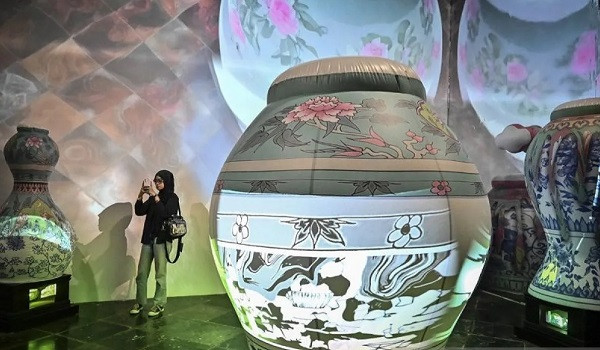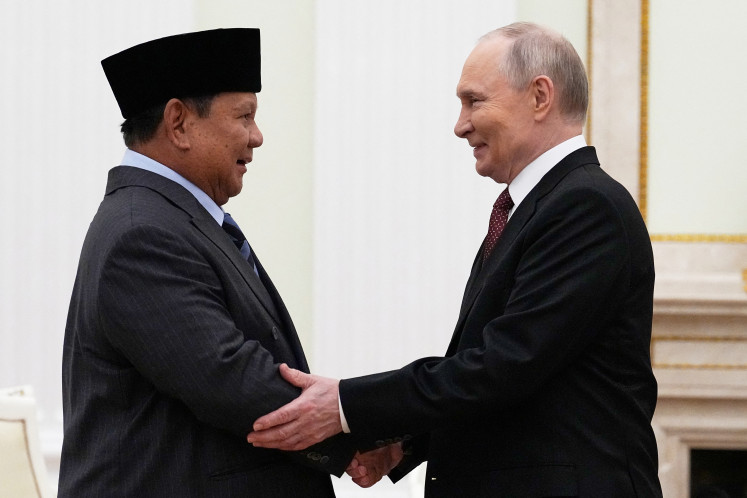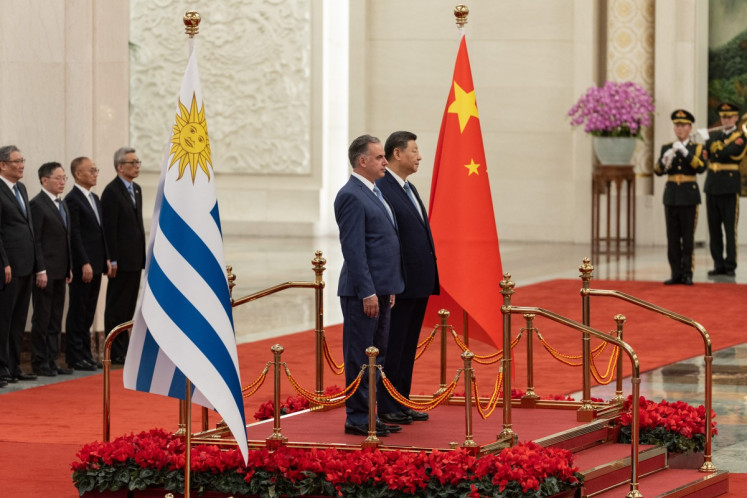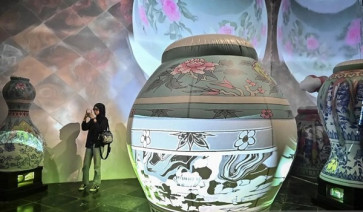Popular Reads
Top Results
Can't find what you're looking for?
View all search resultsPopular Reads
Top Results
Can't find what you're looking for?
View all search resultsReinventing Indonesian identity, rewriting history
Indonesia believes that this act of cultural justice is not just about returning the objects themselves but also about restoring the dignity of Indonesia’s identity, traditions and collective memory.
Change text size
Gift Premium Articles
to Anyone
T
he Indonesian archipelago witnessed an ancient story predating the known histories of many ancient civilizations. The fossilized remains of half of all the world’s known hominid fossils of the Java Man (Homo erectus) found in Indonesia, precisely in Sangiran, Central Java, alongside the giant animal and flora fossils laid in the stratigraphic layers of the site nearly 1.8 million years ago, gave vital proof of early human life and its evolution, showing how Indonesia played a significant role in shaping world civilizations.
For centuries, Indonesia thrived as a nexus of trade, knowledge and culture, commanding vast oceans connecting Asia, Africa and the Middle East during the ancient kingdoms and empires era. Positioned at the heart of the sea routes, Indonesia also harnessed the potential of the sea, through the old maritime kingdom Srivijaya, which controlled important trade routes in the Strait of Malacca and significantly influenced the region.
Apart from that, some ancient texts and temple inscriptions reveal that Indonesia’s ancient civilization mastered most of the science we recognize today, such as astronomy, engineering, philosophy and urban planning.
However, through centuries of colonization, modernization and globalization, much of these legacies were buried beneath newer narratives. As a result, the world came to recognize Indonesia not as one of the oldest civilizations on earth but merely as an archipelago with diverse cultures, even though the latter remains a defining strength of Indonesia today.
For the first time in history, Indonesia now has a dedicated Culture Ministry after 79 years of independence under the leadership of President Prabowo Subianto. This milestone represents a bold move to put cultural preservation, innovation and promotion at the heart of governance. It positions Indonesia to harness cultural wealth as a source of pride, unity and global influence, marking the beginning of an exciting new chapter for the nation.
Guided by Astacita, President Prabowo’s visionary pathway, offering a call to foster a balanced and harmonious existence, integrating the values of culture, environment and sustainable living rooted in diversity, Indonesia stands poised to become a cultural superpower.
The establishment of the Culture Ministry, which will focus on three key priorities covering cultural and tradition protection, cultural diplomacy, promotion and cooperation, as well as cultural development, utilization and empowerment, marks the beginning of Indonesia’s new approach, not only of embracing its mega-diversities but also of reinventing Indonesian identity, making it not just as national strength but also a driving force for social prosperity for the people.



















